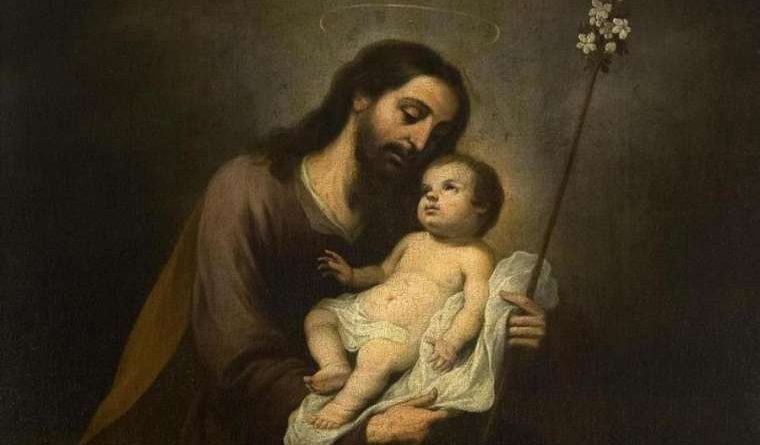St Joseph’s virginity in the Fathers of the Church
As the solemnity of St Joseph is practically around the corner it would be beneficial for all of us to appreciate a powerful virtue in his most holy life, that of virginity. The Fathers of the Church, even if the information they give us is somewhat sparse however when one collects it one can clearly see a bold affirmation of this essential virtue in the life of the Custodian of the Redeemer.
First, Joseph was not the biological father of Jesus. St Ambrose (d. 397) confirms St Luke’s conviction that only the Jews of that epoch believed that Joseph was the biological father of Jesus.
St Ambrose (d. 397) restates in a more pointed manner Saint Luke’s idea that the belief that Joseph was the natural father of Jesus was limited to the Jews of that period: First of all no one should be surprised at the text, ‘who was thought to be the son of Joseph’.3 For rightly was this just a supposition because by birth (Christ) was not (the son of Joseph); but the supposition existed because Mary who had brought Him forth was espoused to ‘Joseph her husband’ (Homilia in Lucam, n. 2; ML 15, 1589).
St Jerome advances the idea that Joseph was commonly known to be the father of Jesus in order that he might protect Mary’s reputation. The Evangelists call Joseph a father, Mary calls him ‘father.’ Not that he had been truly the father of Jesus, but that he was thus considered by all in order to safeguard Mary’s reputation (Adversus Helvidium, n. 4; ML 23, 188).
Second, Joseph never engaged himself in a sexual intercourse while living with Mary. St Ambrose says: It will not be opened by him to whom she was espoused, it will not be permitted, in fact, that she through whom the Lord will pass be opened. And after Him (Christ), it will be closed, that is, Joseph will not open it (De institutione virginis, Ch. 8; ML 16, 320).
On his part St Augustine extolls Joseph’s outstanding purity. Let his greater purity confirm his fatherhood; let not holy Mary reprimand us, for she was unwilling to place her name before that of her husband, but said, ‘Thy father and I have been seeking thee sorrowing.’ Therefore, let not perverse murmurers do what the virginal wife did not do. Let us count (the generations of Christ) through Joseph, because as he was a virginal (chaste) husband, so was he a virginal (chaste) father (Sermo 51, Ch#. 20, n. 30; ML 38, 350). In a different text by St Augustine we find the teaching that Joseph was a virgin indeed. Preserve, O Joseph, together with Mary your wife, the virginity of your members, for out of virginal members is begotten the power of angels. Let the spouse Mary be the mother of Christ in the flesh, by preserving her virginity; you, however, are also to be the father of Christ by safeguarding her chastity and honor (Sermo 195, n. 5; ML 39, 2110:).
Third, Joseph was not married prior his bethrotal to Mary. Origen would argue that it exactly to protect Mary’s virginity that certain would refer to the “brethren of the Lord” as sons of Joseph. Origen (185-253), for instance, states that it is precisely in order to protect Mary’s virginity, that some call the “brethren of the Lord” sons of Joseph. Induced by the report of the Gospel named after Peter or the Book of James, some affirm that the ‘brethren of Jesus’ are sons of Joseph by a former wife whom he wedded before Mary. However, those who make this assertion ultimately wish to safeguard the dignity of Mary’s virginity in order that the body chosen to minister to the Word… might never know man’s consortship (Commentarii in Matthaeum, Ch. 10, n. 17; MG 13, 875: ).
Fourth, Joseph in no way ever ceased to be a virgin. St Jerome decidedly stresses that Joseph remained a virgin as Mary, his spouse, did too.
But just as we do not deny what is written, we do reject what is not written. That God was born of a virgin we believe because we read it. That Mary consummated marriage after her childbirth we do not believe because we do not read it. Nor do we say this in order to condemn marriage, for virginity is itself a fruit of marriage, but because there is no license to draw rash conclusions about holy men. For if we wish to take the mere possibility into consideration, we can contend that Joseph had several wives because Abraham and Jacob had several wives and that from these wives, the ‘brethren of the Lord’ were born, a fiction which most people invent with not so much pious as presumptuous audacity. You say that Mary did not remain a virgin; even more do I claim that Joseph was virginal through Mary, in order that from a virginal marriage a virginal son might be born. For if the charge of fornication does not fall on this holy man, and if it is not written that he had another wife, and if he was more of a protector than a husband of Mary, whom he was thought to have as his wife, it remains to assert that he who merited to be called the father of the Lord remained virginal with her (Adversus Helvidium, n. 19; ML, 203).
Joseph’s chastity shines in his utmost commitment in carrying out his challenging mission of guarding God’s purest ones, (namely Jesus and Mary) as well as the integrity of the family. His perfect fidelity in doing always God’s will make him a strong defender of all families and communities of consecrated life. That is why they are to have continual recourse to his most powerful intercession. As St Madeleine Sophie Barat encourages us to do: Let us love Jesus above all, let us love Mary as our mother; but then, how could we keep from loving Joseph, who was so intimately united to both Jesus and Mary? And how can we honor him better than by imitating his virtues? Now, what else did he do in all his life but contemplate, study, and adore Jesus, even in the midst of his daily labors? Behold, therefore, our model.
Chaste guardian of the Virgin and Joseph most chaste, pray for us! Amen.
Fr Mario Attard OFM Cap





